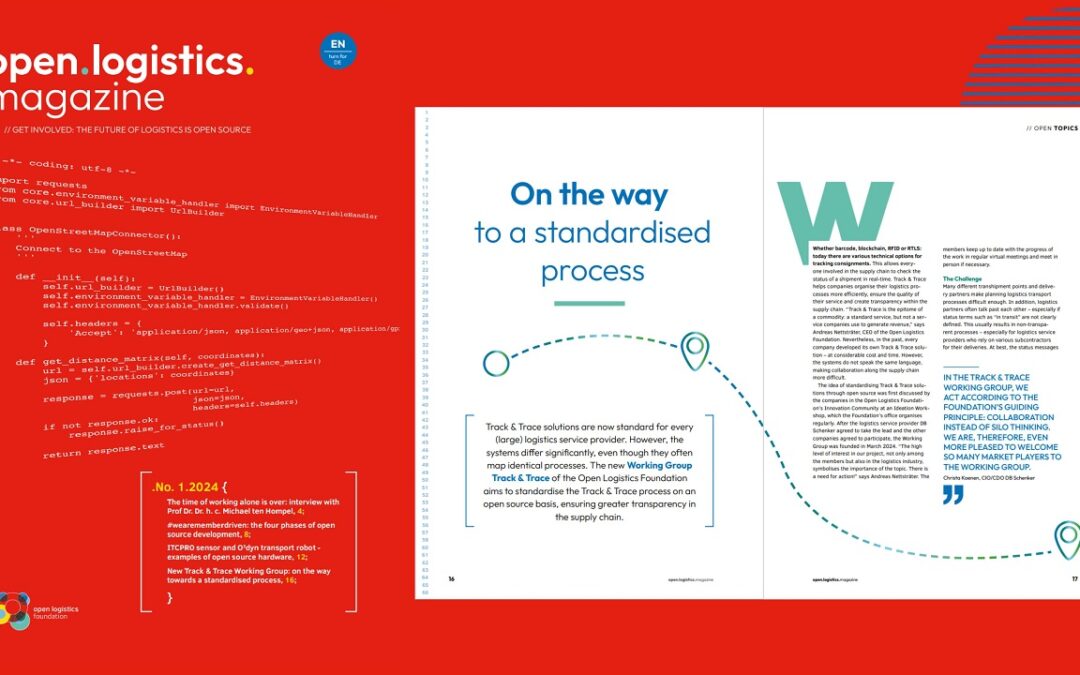
13 May 2024 | Magazine
Track & Trace solutions are now standard for every (large) logistics service provider. However, the systems differ significantly, even though they often map identical processes. The new Working Group
Track & Trace of the Open Logistics Foundation aims to standardise the Track & Trace process on an open source basis, ensuring greater transparency in the supply chain.
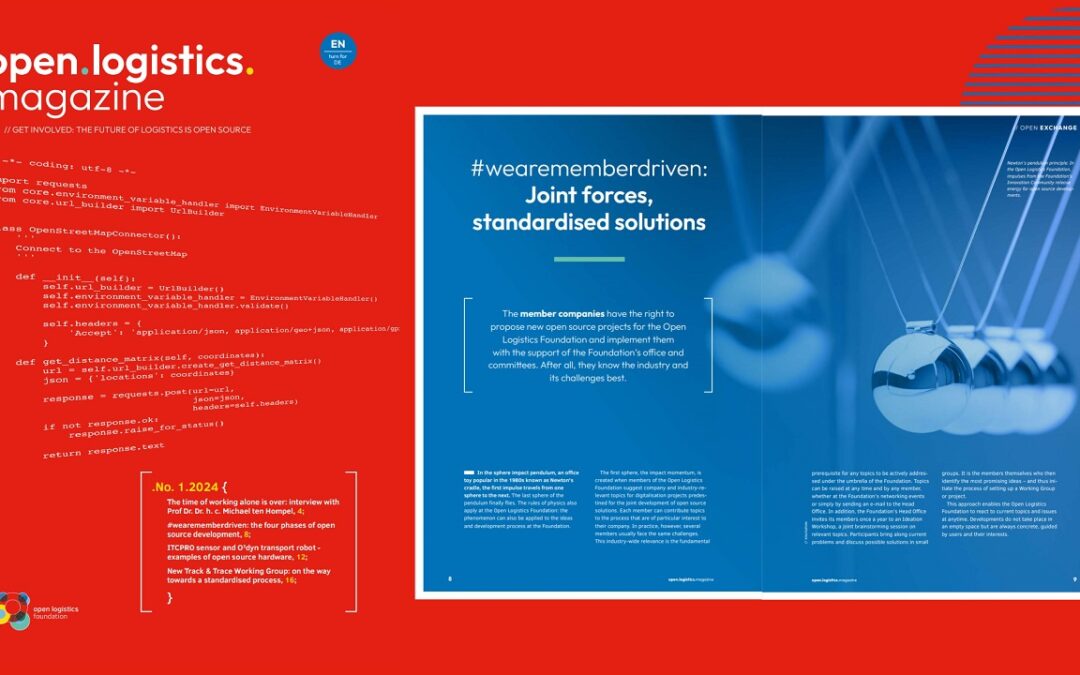
17 April 2024 | Magazine
The member companies have the right to propose new open source projects for the Open Logistics Foundation and implement them
with the support of the Foundation‘s office and committees. After all, they know the industry and its challenges best.
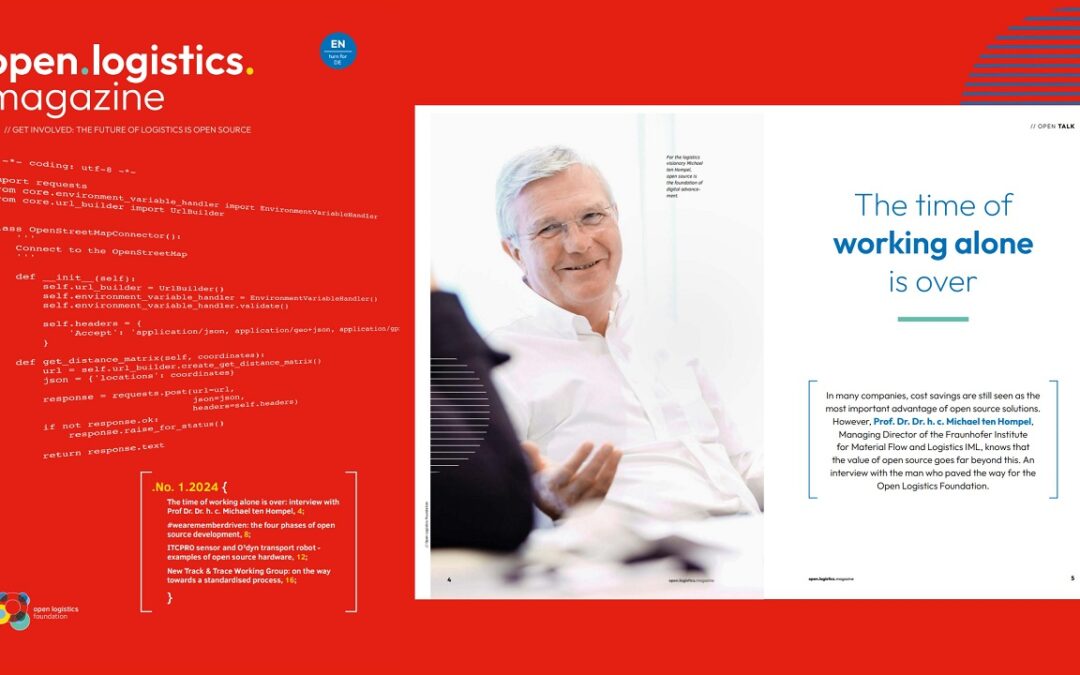
26 March 2024 | Magazine
In many companies, cost savings are still seen as the most important advantage of open source solutions.
However, Prof. Dr. Dr. h. c. Michael ten Hompel, Managing Director of the Fraunhofer Institute for Material Flow and Logistics IML, knows that
the value of open source goes far beyond this. An interview with the man who paved the way for the
Open Logistics Foundation.
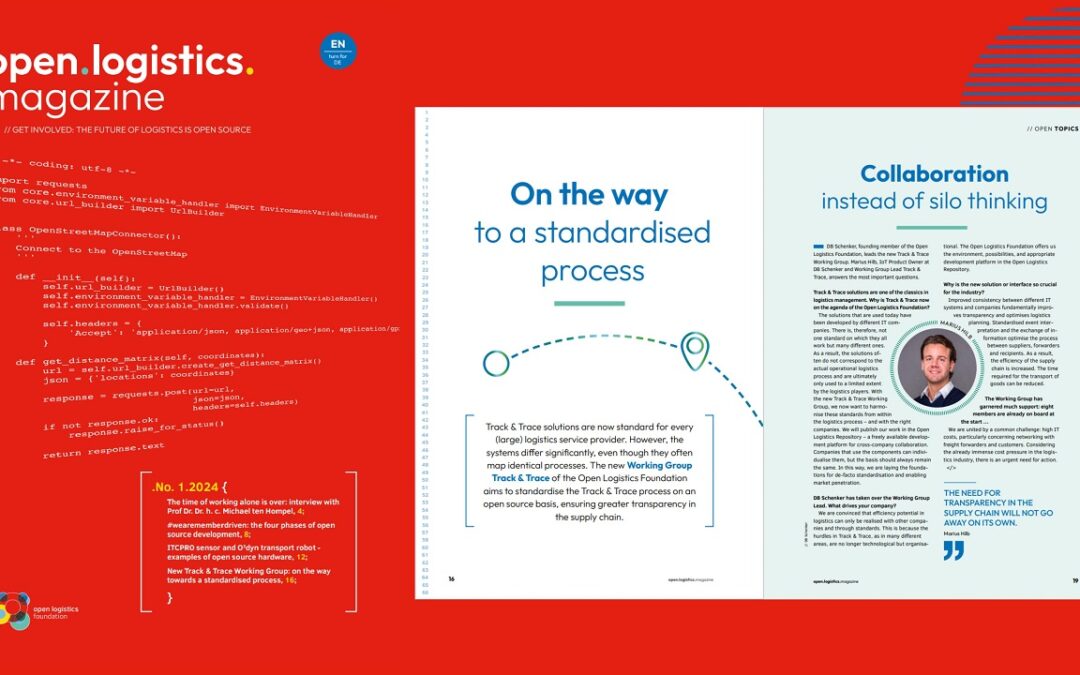
19 March 2024 | Magazine
DB Schenker, founding member of the Open Logistics Foundation, leads the new Track & Trace Working Group. Marius Hilb, IoT Product Owner at DB Schenker and Working Group Lead Track & Trace, answers the most important questions.
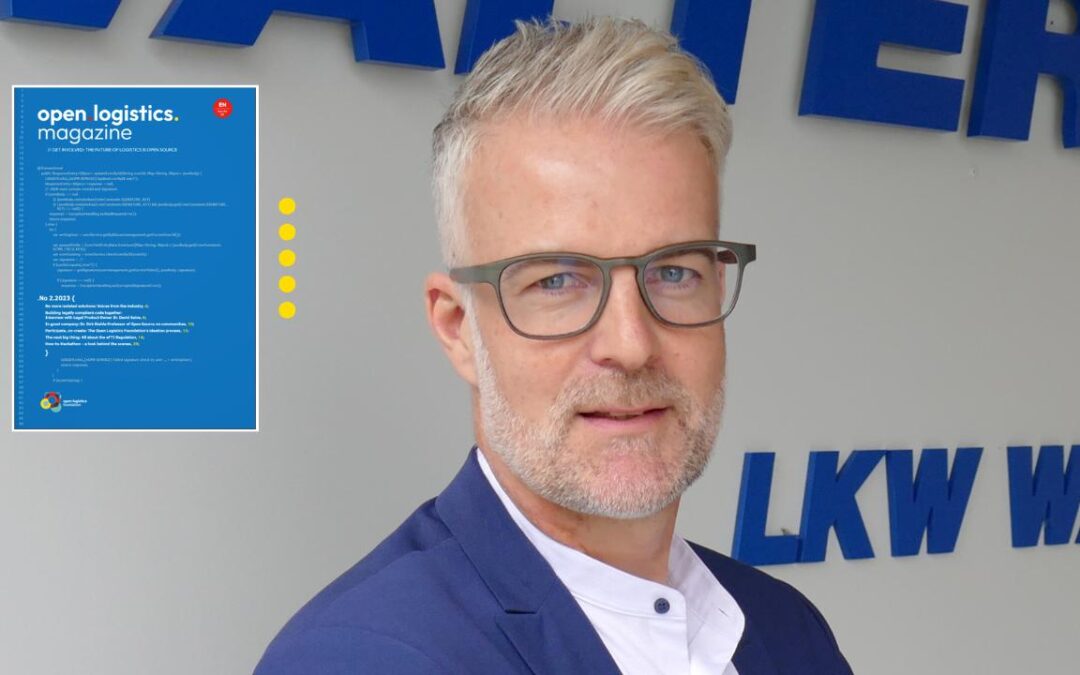
5 February 2024 | Magazine
Open Source is one of the drivers of digital innovation in many companies today. Representatives from three member companies of the Open Logistics Foundation explain the
importance of open source for them. Three different companies, three individual open source strategies – but a common vision.
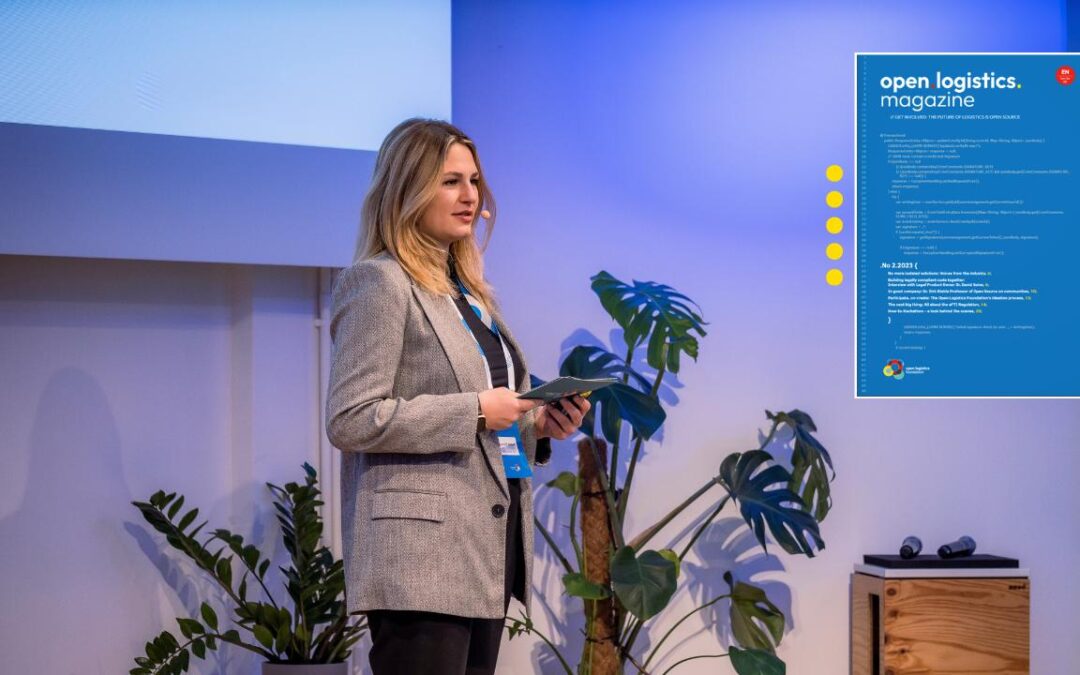
18 January 2024 | Magazine
An open source community thrives on the commitment of its members – and needs the support of an organisation. Nathalie Böhning,
Innovation and Project Manager at the Open Logistics Foundation, answers the most important questions about the interaction between the Head Office and the companies in the so-called ideation process, the path from idea to project.
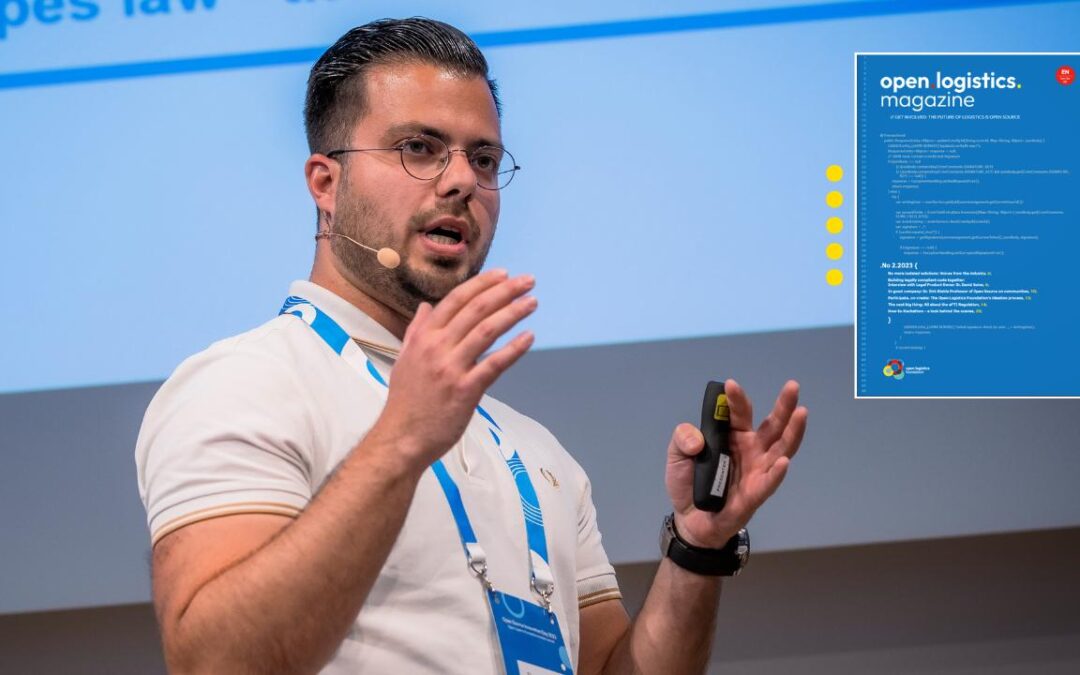
4 December 2023 | Magazine
No one would think of planning and building houses without considering the applicable building regulations. In software development, however, legal regulations are often ”neglected“. The Hamburg lawyer and digitalisation expert Dr. David Saive, LL.M., wants to change
that – a conversation about the necessity of interdisciplinary cooperation between law and technology.
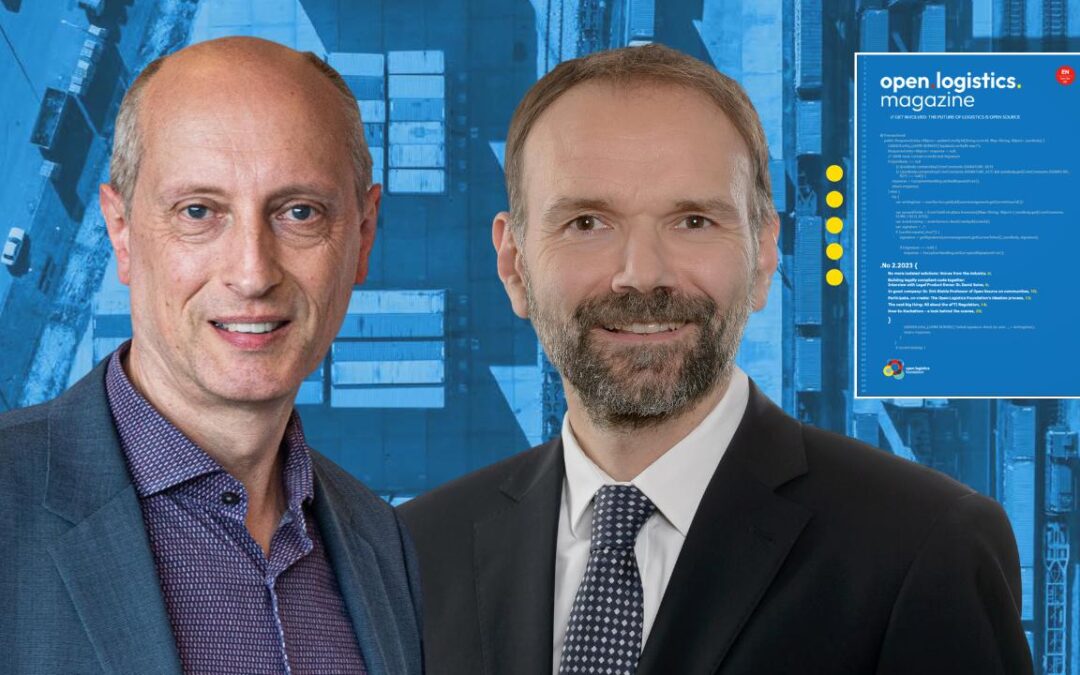
13 November 2023 | Magazine
The EU regulation on electronic transport information, or eFTI for short, poses major challenges for logistics companies, but also offers
them opportunities. What the regulation says, why it is also spurring the introduction of the electronic consignment note – and what role open source plays in its implementation.
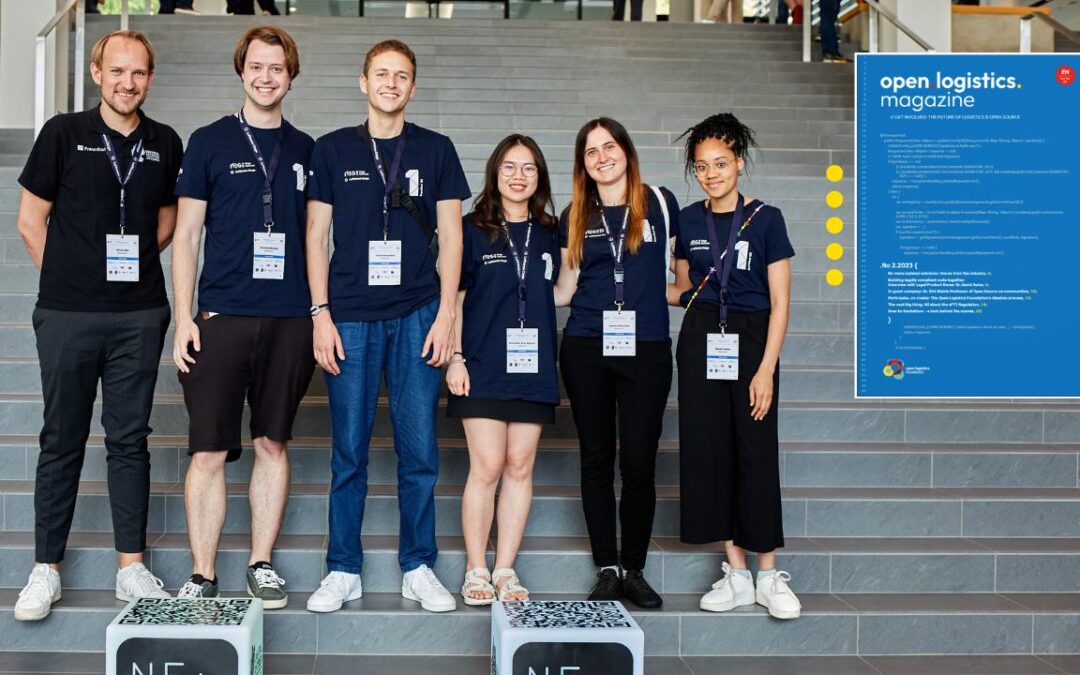
8 November 2023 | Magazine
The “IATA ONE Record Hackathon“ is a platform for digital experts who want to develop innovative solutions based on the ONE Record standard for air cargo. Oliver Ditz, research associate at Fraunhofer IML and head of the Working Group Digital Air
Cargo, took part in the seventh edition of the exclusive event in Frankfurt with his NE:ONE Play
team. The countdown is on …









